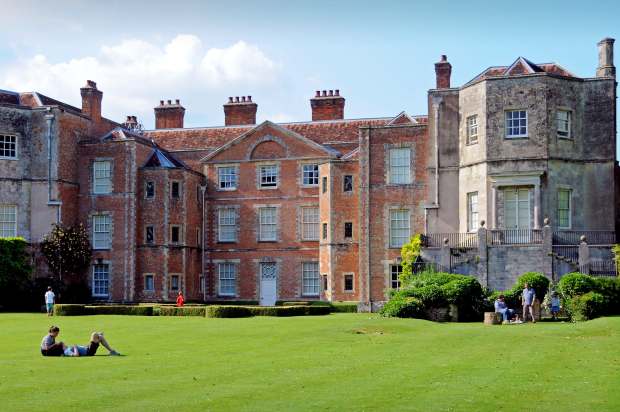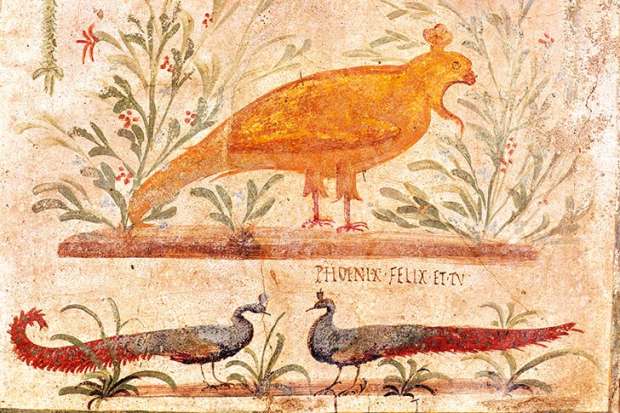It is 50 years since the publication of Very Like a Whale, Ferdinand Mount’s first novel. ‘Mr Mount’s distinguishing feature as a novelist,’ Mary-Kay Wilmers wrote in her sniffy, uncomprehending Times Literary Supplement review, ‘is that his analysis of society is obedient to Conservative economic principles.’ In the ensuing half century Mount has proven resolute in his Conservativism. He had two spells as a gloriously shrewd political columnist in The Spectator, headed Margaret Thatcher’s Downing Street Policy Unit, wrote the Tory manifesto for the 1983 general election, and edited the TLS under Rupert Murdoch’s proprietorship.
Wilmers’s disapproval of Mount has relaxed a bit — perhaps because he is a closeted baronet who won’t use the title that he inherited. Under her editorship of the London Review of Books, he has become the least fanatical of LRB contributors. His essay ‘Nigels against the World’, published there last May, put the case for a Remain vote more effectively than anything else I read. There have been many more books since Very Like a Whale: doughty social critiques; Cold Cream, a bewitching, rueful, grudge-free memoir of childhood and early manhood; the urbane and unerring essays in English Voices; and a dozen novels.
If Grey Gowrie is the most undervalued poet of our times, because he is an Etonian earl, an ex-member of Thatcher’s cabinet and a former chairman of Sotheby’s Europe, Mount has similarly been cheated of his due as a novelist because he is an Etonian Conservative. ‘The novel’s fantastic, what a shame he was a Tory propagandist,’ sneered the Independent’s headline writer above a review of Heads You Win. Both Gowrie and Mount are too assured but unostentatious in their work, too careful and immaculate in their choice of words, to be noticed in a world of hotheads, loudmouths and narcissistic personality disorder.
Very Like a Whale was the first of Mount’s state of the nation novels. It is set in that nadir of British history, when Harold Wilson was prime minister and a 98 per cent marginal rate of personal income tax was levied, and five years before Britain was jolted from its complacent insularity and began a brisk political revival by joining the European Union in 1973. The boyish vitality abounds in this tale of a futile, demoralised upper-middle-class family stumbling downhill. Mount’s anti-heroes truckle to moneyed louts, lose caste, play golf in Surrey, shoot pheasants in Wiltshire, wisecrack in Chelsea, sample nightclubs in Berlin and are mauled in the City of London board-room jungle.
‘What society can accurately be described as healthy?’ Mount asks. He depicts postwar England as in ‘a perpetual hangover’. The lionhearts of the war years have turned sheepish. They give their flagging energy to lust, booze, smart chatter, share-pushing and aimless regrets. They are quick and clever in improvising over insignificant matters, but spineless and indecisive in everything that should count.
Mount’s second novel, The Man who Rode Ampersand (1975), is presented as a civil servant’s memoir of his father Harry Cotton. The old man has been by turns an amateur jockey, soldier, barman, fisherman, recruiter of Irish workers for wartime English factories, and a militant pedestrian campaigner against roadhogs. He loves to sing the drinking song from Don Giovanni, and to join jostling humanity in fêtes, military parades, protest marches, funeral cortèges, harvest festivals and charabanc Mystery Tours for partially sighted people. Everything about him is abundantly life-enhancing: everything about him fails.
Marx complained that the Paris revolution of 1848 was not run according to communist economic principles, but driven by an unholy mix of decayed roués, bourgeois chancers, ferret-like vagabonds, discharged soldiers, ex-prisoners, spongers, drifters, confidence tricksters, ponces, literati and rag-pickers. Mount’s small bit characters are like a chirpy Home Counties version of Marx’s Parisian rabble.
The Clique (1978) begins with a vivid evocation of journalists and sensation-seeking rubberneckers crowding the pavement outside a house in Kensington where the Greatest Living Englishman is on the point of death. The post-Churchillian English were, Mount thought before the dawn of Thatcherism, ‘exhausted by their history’, a people fit only for cheap jokes, so that ‘situation comedy is their only genre’. The Clique’s protagonist is a provincial reporter who stumbles through Fleet Street and New York City, preferring his experiences as a cricket correspondent to those at a multiracial love-in. He is a proto-Thatcherite, though, dismissive of soft options, who wants ‘to be with people who, if they changed their minds at all, changed them clumsily and with pain’.
The six volumes of The Chronicle of Modern Twilight sequence were written between 1975 and 2004. The Man who Rode Ampersand, The Selkirk Strip, Of Love and Asthma, The Liquidator, Fairness and Heads You Win are premised on the notion that people betray their real characters by their social reactions. With wit, trenchancy and wiliness Mount chronicles a series of social episodes in which people betray their real selves.
He is tender and protective — never angry or unforgiving — of the inadequate opportunists, self-knowing weaklings and stylishly attractive cyphers who people his novels. Characters appear, and bulk large for a bit, and then disappear so casually that one does not notice when they have gone – just like real life. People whom one sees a lot, and are counted as friends, turn out not to matter.
Readers grow avid to know the back stories and fates of Mount’s minor characters: the bogus Bessarabian counts, smelly mystics from the dusty hills of Anatolia, Maltese sword-dancers with Highland fling influences, a Croatian taxidermist who had been a ferocious partisan until his sex-change, a Sumatran dwarf prostitute who loves rereading the pony stories of the Pullein-Thompson sisters, alligator-hunters playing bridge in the Florida swamps, and a Central American ambassador singing Masefield shanties in the Ritz hotel in Madrid.
Mount’s beautifully crafted sentences never feel contrived. I have transcribed dozens of his paragraphs into my commonplace book as perfect models of balanced, understated eloquence. His maxims, paradoxes and character sketches are marvels of distilled wit and quizzical irony.
The Chronicle of Modern Twilight is more emblematic of its times than the novels of Martin Amis, more ambitious than those of Julian Barnes, more richly imaginative than those of Ian McEwan, more supple and clear-sighted than those by anyone I can name. Won’t some enterprising publisher reissue the sequence in a uniform edition together with Very Like a Whale and The Clique?
Got something to add? Join the discussion and comment below.
Get 10 issues for just $10
Subscribe to The Spectator Australia today for the next 10 magazine issues, plus full online access, for just $10.
You might disagree with half of it, but you’ll enjoy reading all of it. Try your first month for free, then just $2 a week for the remainder of your first year.














Comments
Don't miss out
Join the conversation with other Spectator Australia readers. Subscribe to leave a comment.
SUBSCRIBEAlready a subscriber? Log in